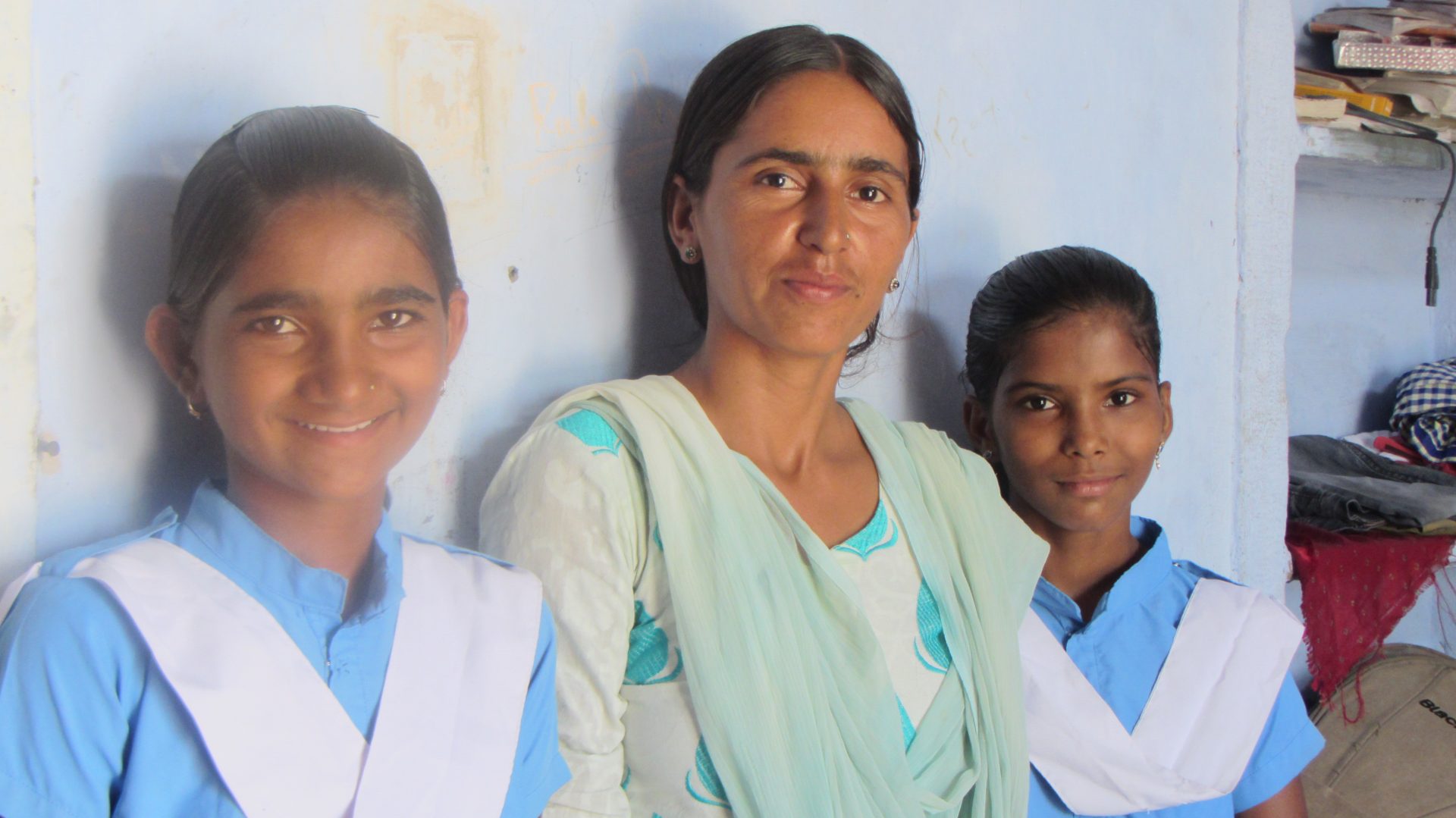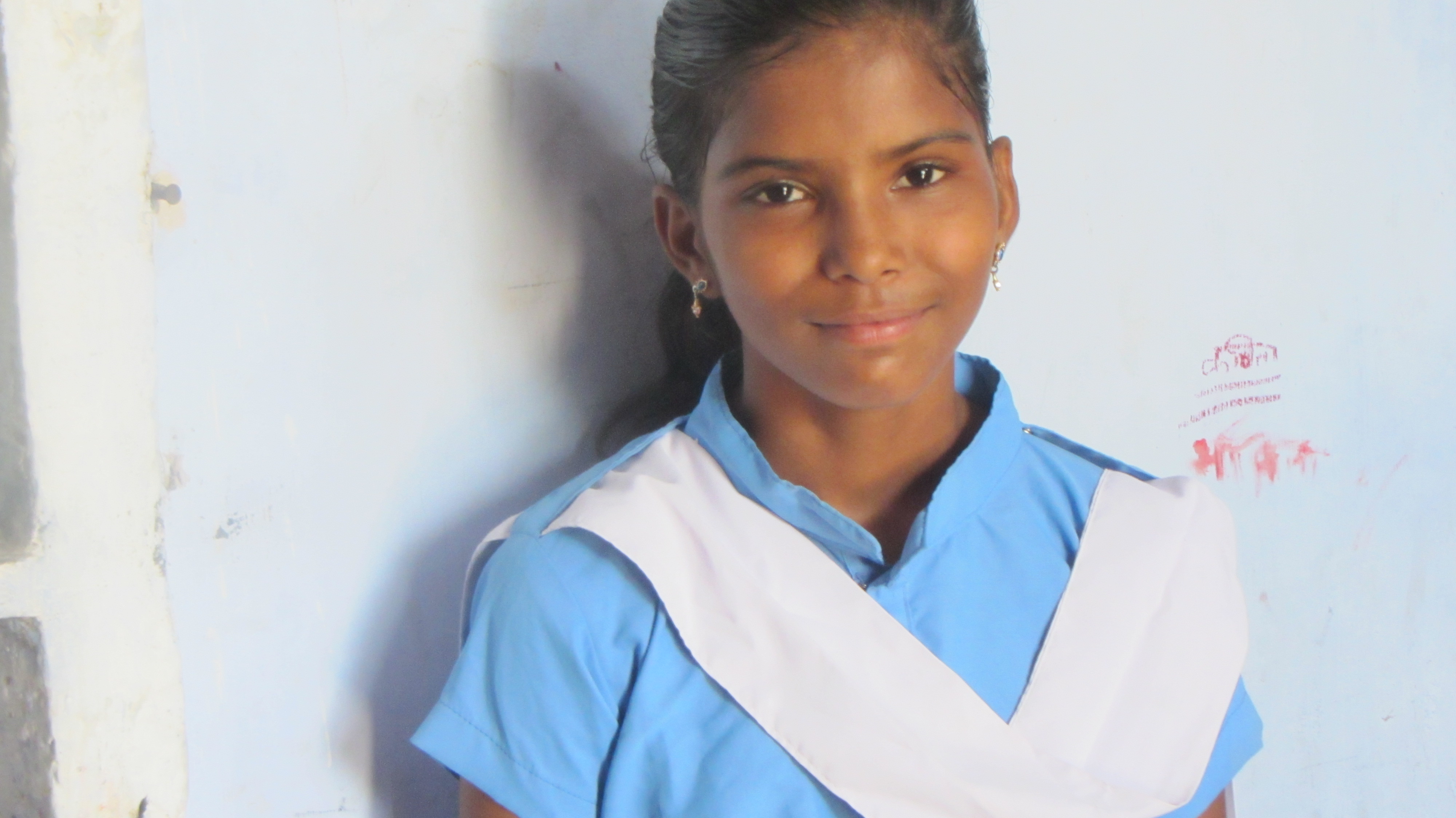Rama Kumari Finds Her Voice

Rama Kumari* is a young girl from a village in Rajasthan, India. She has two brothers and a sister. Her mother is illiterate, while her father has very basic literacy skills. Rama’s parents are farmers. The family lives in an area where henna, a plant used for natural dying, grows abundantly. Most households earn their main source of income from the harvest. The usual scenario for girls like Rama in her village is to drop out after completion of primary school and then either start helping with the cultivation or stay home and do domestic chores.
In Rama’s village, after primary school, one has to travel to another village, which is 5-7 kilometres away, to continue their secondary schooling. Since there are no easy means of transport available, Rama dropped out of school and stayed at home once she had completed 5th grade.

On being asked about Rama’s further studies, her father spoke of his reluctance to send his daughter far away for schooling. It was unsafe, expensive and futile in light of the fact that she wouldn’t really need an education to be a wife and mother in the future.
An Educate Girls’ Team Balika (community volunteer), Bablu Kanwar, visited Rama’s home. On being asked about Rama’s further studies, her father spoke of his reluctance to send his daughter far away for schooling. It was unsafe, expensive and futile in light of the fact that she wouldn’t really need an education to be a wife and mother in the future. Rama remembers feeling distressed during this conversation. She wanted to protest and express her desire to study but knew she had no right to speak against her father’s wishes. Bablu challenged Rama’s parents to change their mind-set concerning their daughter’s education. She explained why it was important for adolescent girls to study and be empowered and how not just their family but their entire community could progress when both girls and boys get educated.
Community Volunteer Bablu was the first person in their village to have completed her 12th grade. Going door-to-door, volunteering with Educate Girls, was a pioneering move for a woman in their village. Rama encouraged herself by saying, “If Bablu didi could study, so can I!”
Bablu continued visiting Rama’s home to persuade her parents to send her to school and soon she became Rama’s new inspiration. Rama knew that inspite of the lack of facilities; Bablu was the first person in their village to have completed her 12th grade. Going door-to-door, volunteering with Educate Girls, was a pioneering move for a woman in their village. Rama encouraged herself by saying, “If Bablu didi could study, so can I!”
Eventually Bablu took Rama’s father to the closest KGBV (Kasturba Gandhi Balika Vidhyalaya), a government-run, free, residential secondary school for girls, which is 25 kms away from their village. Finally, Rama’s father agreed to enroll her in the KGBV. Rama still remembers how she rushed out of her home to tell the good news to her friend when she heard it from her father.
Rama and two other girls from her village were enrolled in the KGBV through Educate Girls’ efforts. Even though Rama was excited to go back to school, she was apprehensive about staying away from home and wondered if the new teachers and environment would suit her. At first, Rama felt home-sick and considered leaving. Her teacher helped her understand that going back home was not an option if she truly wanted to study further. Now, in the second year of her studies at the KGBV (7th grade), Rama acknowledges that her teacher was right, “I am so grateful that Ms. Shobha didn’t allow my emotions to come in the way of what was good for me, If I not followed her advice I wouldn’t be here, pursuing my dreams!”

One of the things Rama loves about the KGBV is the fact that it has so many girls, from different villages and castes, all living together without any discrimination. Within many of their villages, caste-discrimination is still prevalent and widespread. Even at this young age Rama is sensitive to gender discrimination as well. She says, “No one listens to the women! Our voices are seldom heard. Even here at school, at first girls don’t easily express their desires.”
Rama wants to become a police officer in the future and wishes there was a secondary school in her village so that all the girls could continue studying without impediment!
“I want to serve my country as a law enforcer, use my voice to for fight for good and encourage others to do the same. I want every girl in my village to be educated! If they study they will have more opportunities for development and they will find their own voices, just like I have found mine!” ~ Rama Kumari
*Name changed to protect identity of the minor
Educate Girls
Posted on June 22, 2016
Interested in contributing towards
educating girls?
Quick Links
Resources & More
Keep helping. Stay Updated.
Child Protection Policy | Privacy Policy | Terms of Use | Employee Login | IT Assets
Educate Girls is a project of Foundation To Educate Girls Globally (FEGG) | FEGG is registered in India under Section 8 of the Indian Companies Act, 2013.
© 2018 All rights reserved. Educate Girls.

